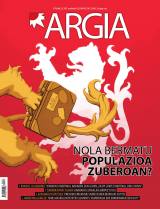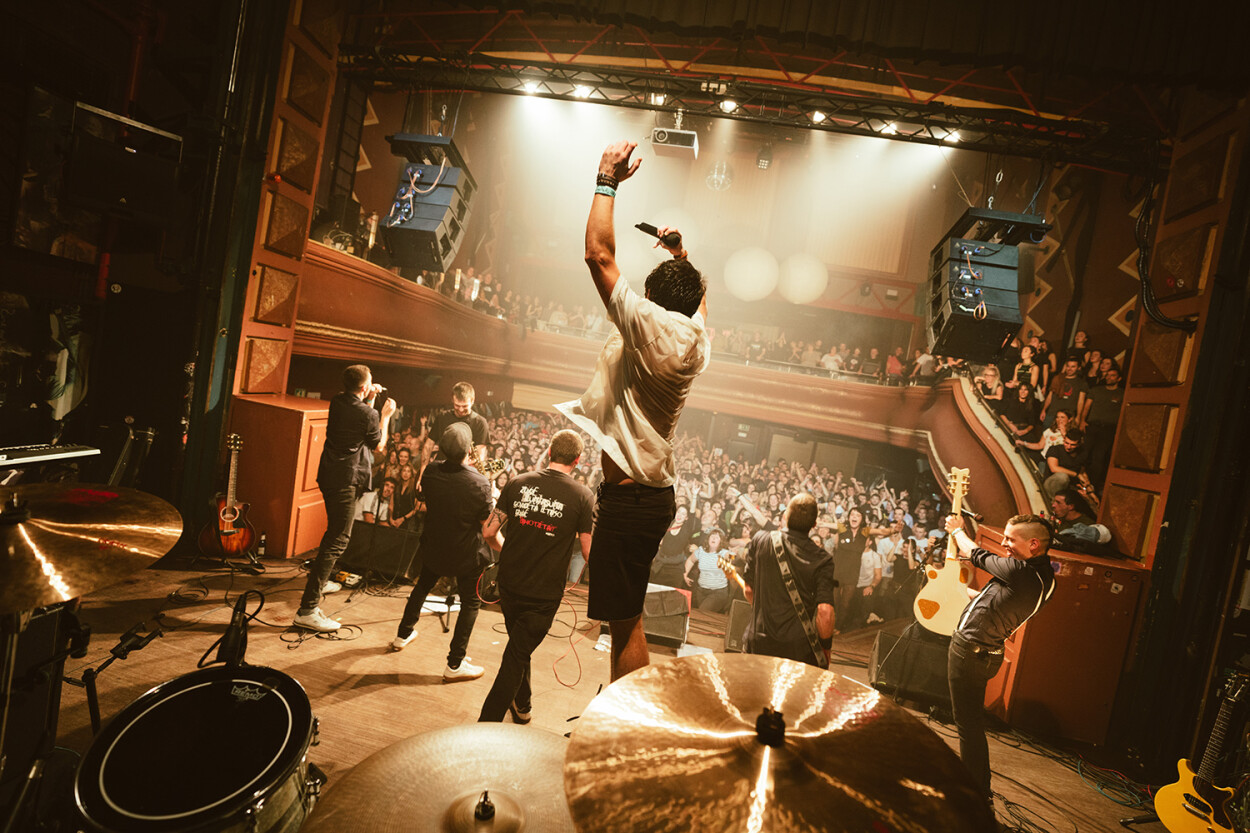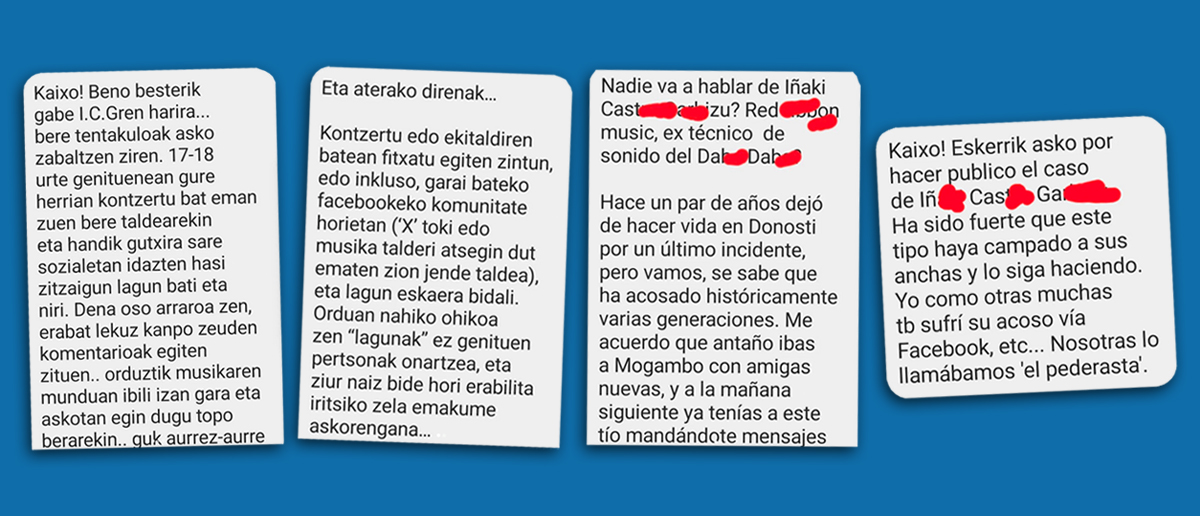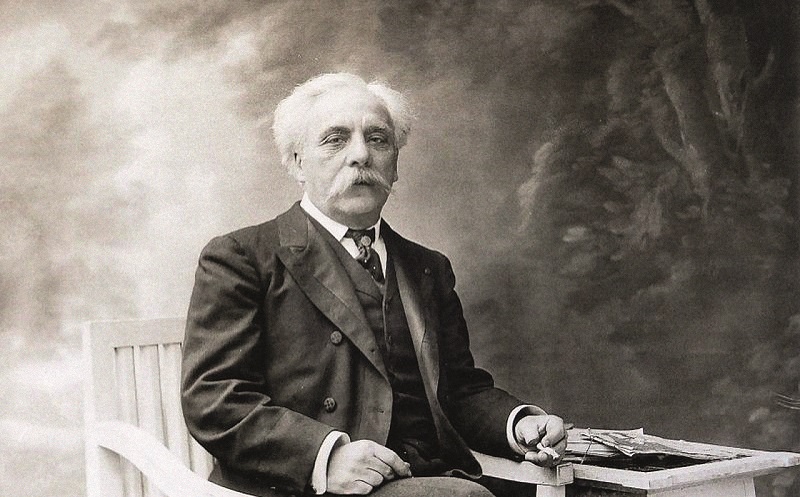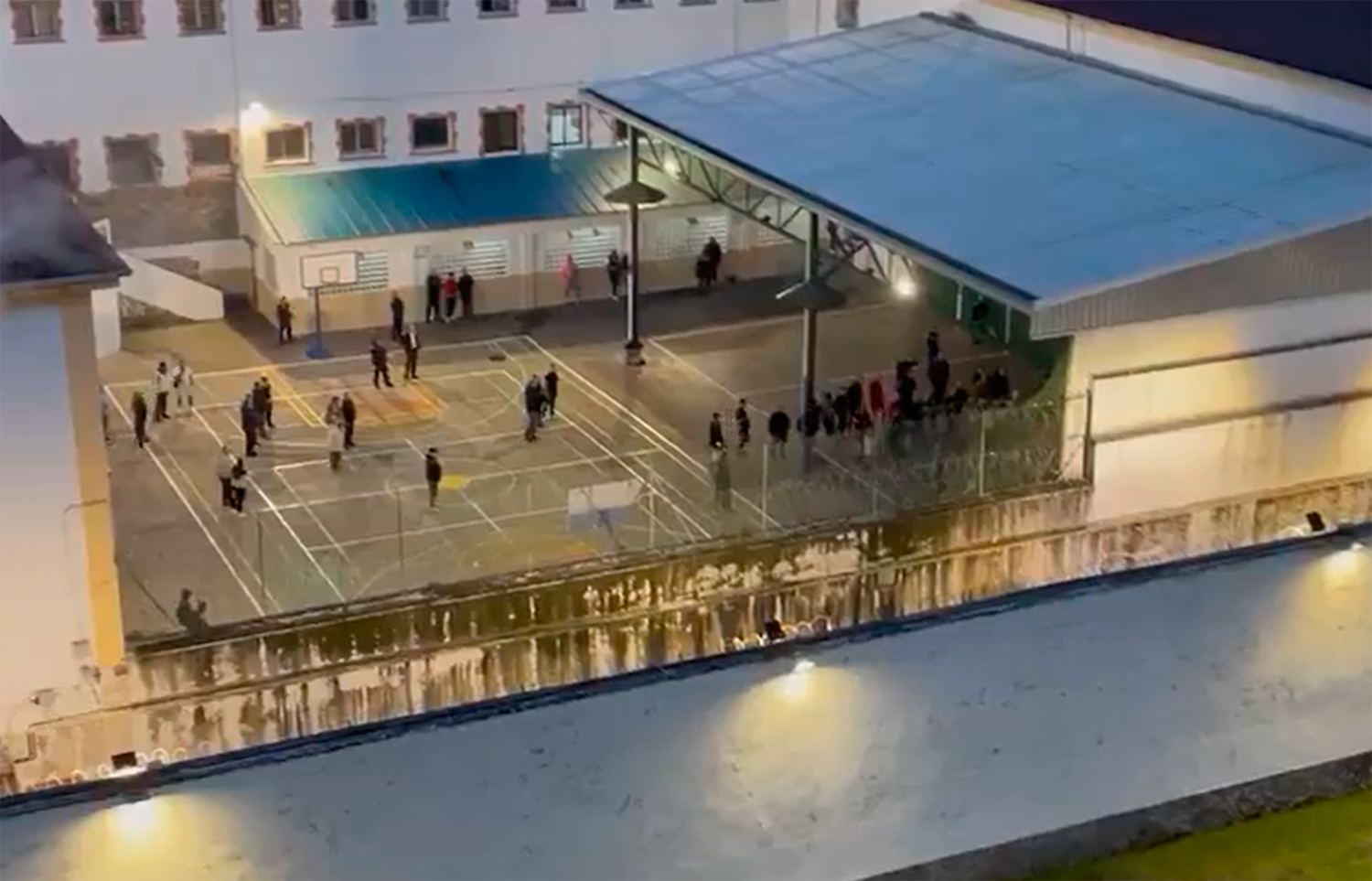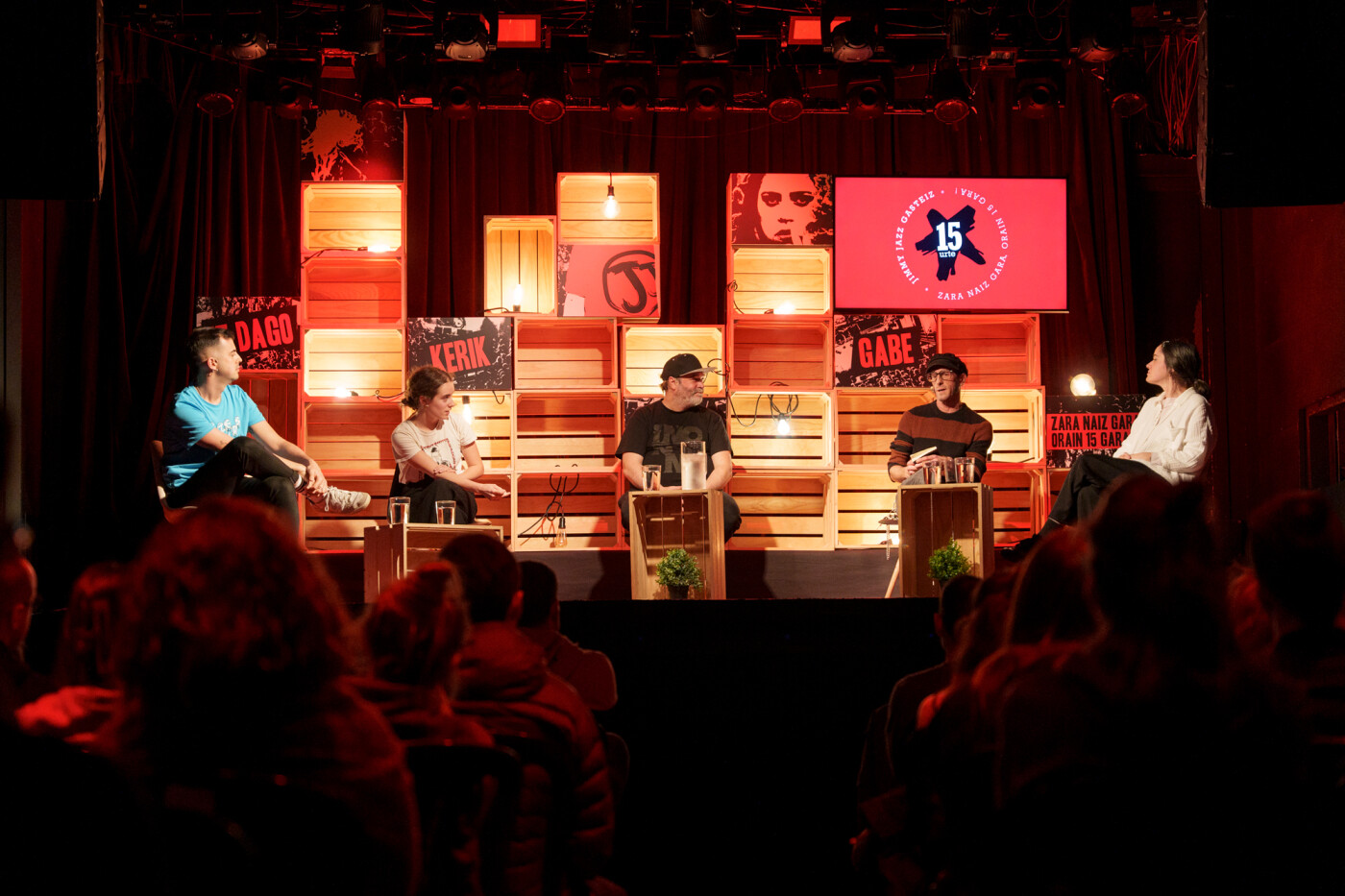"We live in a continuous spark, but things are much more difficult."
- Javier Muguruza has set up his new album moving away from the acoustic format, with electric guitar and electronic sound. However, it does not have much faith in radical changes, and its usual characteristics continue to work with An Open Window: paused rhythms, delicate environments, and silence games. Starting from the album, we've talked about the musical landscape, about the new technologies, and about the symptoms of the time in which we live.
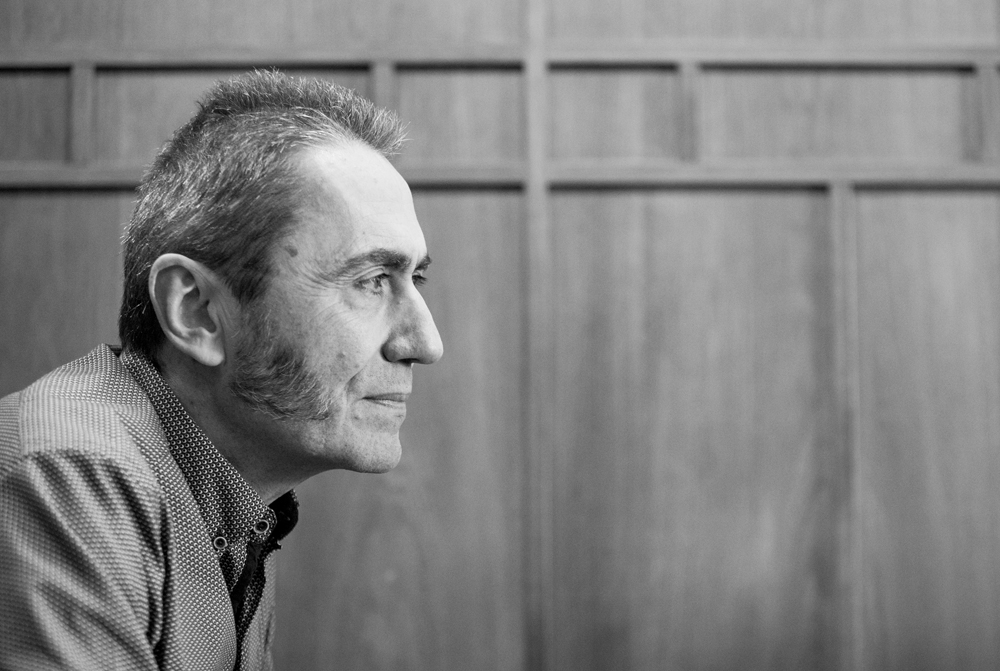
Jabier Muguruza is at ease with her new album. Also with the video clip made by the filmmaker Mercedes Álvarez and the concerts he has done so far. Since he published it at the end of October, Ander works with Mujika, unlike what he has done so far, introducing samplers from time to time. “I have always focused on the texts, on the interpretation, on what every word asks me. Now, moreover, I have to be careful to introduce the sounds of sampler.” It has been played in Donostia, in Durango, in Bilbao, and soon it has left to Catalonia. Seeing what they have experienced in recent times, it has occurred to them to put an open micro on the stage, with solidarity. “The problem is that some people have told me they want to use the micro and in the end I will have to ask the technician to fit me,” he laughs. We caught him a new Thursday morning and started chatting with the first cafe.
This time you have moved away from the jazz atmosphere of the Tonetti Brothers. And in search of new sounds you've come to Ander Mujika and Javi Vicente Carasueño. Why?
I think it is the author's own attitude. At least I always reflect and look. Among other things, looking for very meaningful musicians. I think I have a little bit of common sense to recognize those special musicians, and that's why I've worked with wonderful musicians. I've met good pianists and guitarists, but it's not just about helping the song through harmony. That's what a lot of good people do. From there to creating special environments there is one more step. When I heard the works of Mújica and Carasueño, it seemed to me that they had that special intuition. And I've been able to see that it is.
How have you worked between the three?
I am methodical, like most of those who claim craftsmen rather than artists. Pick up the words, make them mine, play the piano, get hours and hours -- sometimes like a fool until you lose whole evenings -- and all of a sudden, there's something mysterious, it creates something. Of course, before that, I talked a lot of time with the two musicians. I tried to explain what I was looking for in songs and even on the album in general. I try to explain the musical themes and the concepts that are so difficult to explain. We would send the idea of piano to Mujika, and soon he would introduce me to his work and at the end we would send it to Carasueño. Then we made the first trip to Zaragoza and stayed there for a long time. In most of the things we were pretty much in agreement, in others we were not. The last phase was that of mixtures, in summer. There were also discrepancies there.
“I also claim the female element from my masculinity”
How did you manage those discrepancies?
Carasueño is a passionate about electronics that sometimes wanted to get too much for me. My philosophy is that nudity gives music a lot. There were fights, but we managed very well. Sometimes you have to give up and sometimes stay.
At least in the final result, nudity is still there.
And that doesn't take away the other one, because there are powerful explosions, distorted guitar moments, electronic moments ...
And among them, the voice of Mireia Otzerinjauregi.
I have some casualties with Leonard Cohen. When I'm told I started late, I always say: “I like Cohen.” Cohen has always had that female presence, and I too think it is beautiful. I also reclaim the female element from my masculinity. I am once keen to write about these issues, because it seems to me that in the Basque world we are many times in another topicosphere outside the main topikosphere. It's not just about masculinity and femininity, it's about other issues. At my age I get tired.
How do you feel it more exactly?
In the Basque world in general. With the theme of technology, for example. I do not want to go against technology and, furthermore, that is not my position – I have just taken advantage of technology to make a new record. In this respect, however, some poor speeches are being developed. For example, hear: “The world of music is democratizing.” Or: “Today is read more than ever.” Those ideas are very dangerous, because they really have, but they silence a lot of things and lead to very dangerous conclusions. Let us all say that this democratisation has been accompanied by great precariousness, etc. A more general and deeper picture, please. Because I'm talking to young people, and I know the conditions in which they're performing concerts. The other day I was told one with a long history of distribution in the Spanish state: “This issue of democratization is another bluff. The picture is becoming more and more uniform.” Whoever doesn’t want to see that… Another thing is to say that we have many voices in our guettotxo. But let's go further. Or yes, it is true that it reads more than ever. But did we stay on that? Or we'll dig a little deeper and say at the same time what kind of reading is being lost, what does that bring us? Let's not be too simple.

Compared to the fetish ideas to which he refers, what does he claim?
Sensitivity and critical sense. These are the two columns. But the critical sense, the real one, not the global hairdresser referred to by Harkaitz Cano. If we do not try to take that step, I see some dangers and I worry. But I don't want to look hypercritical, because that's not an interesting attitude either.
Atxaga said that the closest thing to an acrytic is a hypercritic.
I recently heard him say a similar idea: “Don’t accept negative reviews from anyone who would never make you a good critic,” or something. I agree. I wouldn't want to be hypercritical, because to start with, it's me who's been content with his work and what he considers a luxury living out of music today. But it's also logical to explain some concerns, and I feel a little bit overwhelmed by sensitivity and critical sense. I will give a thousand examples: where are the hour and a half interviews held on Spanish television in the 1970s with Julio Cortazar, etc… It is clear that the level of television is falling.
“It seems to me that in the Basque world we are many times in another topicosphere outside the main topikosphere”
Let's go back to the record. The eight songs have been written by eight different writers and, although in general they are rather dark, each song has seemed written in a very different tone and record from the others. How do you make all these different voices become yourself?
Different in each case. When I propose a topic to Iñaki Irazu, I know he will do whatever he gets on the tip of his nose. I would put Harkaitz Cano at the other end. I pass the theme, it develops what I say, we make a meal, we talk about the cultural panorama, and there comes that letter, that the barbarians appear, etc… That of Gerardo Markuleta, another case: we both had our mother with Alzheimer’s, while we recorded the song that died yours and ours recently. I follow Anjel Erro in Berria, I like it very much, it's nothing far-sighted. He wrote an article about spam, I talked to him, he wrote the text to me, and I really liked it.
Yes, but I insist, all the texts seemed to me to be very different, difficult to put into one voice.
Partly I agree, but partly not. I have also received other letters for this album which, by no means, I could not include in that connection. And with these letters, I was able to do a piece. With the unity of the work, I am still a classic. In literature, it seems to me that stories are never accidentally placed in a book.
As for the sound, you've gotten a little out of the line you've had so far, and you've put electric guitars and electronic sounds in. Why?
If a specific line has been produced in the previous fourteen discs, this has been the acoustic/electrical/electronic binomial line. But not all the above records have been the same. It is a very different bet to make a album with jazz guitars by Roberto Yaben, bass and voice, or with the naked atmosphere of Anjel Unzu, or with the atmosphere of the Tonetti Brothers… It is true that this time I have left out the acoustic environment and I have put a guitar of another style, more dirty, more brusque, more lacquer. And touching electronics has also been a surprise to many. I believe that the changes are taking place in us unconsciously and that we do not know how to rationalise well. I read the musician Gari that I needed to get out of the comfort zone and gave me what to think. Because I was at Tonetti Anaiak's absolute comfort point.
“I feel a little obscured by sensitivity and critical sense”
In a positive or negative sense of comfort?
There's the problem. Most human realities are ambivalent, and in that ambivalence we have to move, though often uncomfortable. I was very happy with Mikel Azpiroz. He's a great musician, we have a wonderful personal relationship. Nothing to say about the band. The good thing about that is that you're enjoying and you're sure to convey that joy to your audience, both in the play and in the live. Jokingly I said I felt Chet Baker with that group. But something told me that I had to experience, that I needed a change, and if you add to that that I had signed Napoka Iria – and Ander from there – and Carasueño – from Tulsa’s first album… I don’t know how all that was inside me, but on one occasion I said: this is the time, I have to do it. Among fears, vertigo… but I went ahead and I'm happy.
We're talking about the jump in the new record, but we can talk about what hasn't changed, because your usual footprint is still there. It's a turn that goes in tune with your journey, if you have it.
I think so. I'm listening to a lot of opinions, and even though some of you have been very surprised, most of you are going around: the change of atmosphere is obvious, but it's still your music. Composition, interpretation, play with silences… The philosophy of my entire trajectory is there. Let me say even more: if you're a fairly serious author, changes are possible, but I don't believe in radical changes. I know that the opposite is now very fashionable. This week I received an e-mail saying: “I hope the year has started well, and if not, we can start every day from scratch.” Answer: “We leave this discussion for a coffee.” That message is very fashionable, every day we decide our things, our identity, sex… but it is a naive approach. It's the ignorance of each other's most intimate personality, and I've given it in that life.
Pello Lizarralde told me in an interview that he didn't trust writers who write very different books. Do you think the same thing about musicians?
I identify absolutely with that idea. I've been in this job for many years now, and I have the feeling that one of the keys to being a faithful audience is that what we do for people is credible, that we notice that we are ex officio. I demand the idea of the craft, the craftsman. I'm often asked: “Do you always get a new job every two years?” Well, yes, I work like this, every day I get in front of the piano and start to work. I'm not an artist in the great sense of the word. Look at Narbaiza said recently in an interview with Berria that he was looking for his voice. I also searched for my registration, but once I had checked why I had to go.
I mean, you're not going to reinvent yourself anymore.
I don't believe in everyday reinvention. You know what the famous phrase says: “That’s what we are, childhood and not much else.” I don't think we're determined to that extent, but there are things that are irrefutable. Today we live in a continuous spark, it gives the impression that everything is possible, but no, things are much more difficult.
When we talk about French composers, we think of Claude Debussy and Ravel. There are those who have fun defending one or the other as the best French composer of all time. Frankly, two geniuses have been absolute, as a result of the circumstances of their time. They were a very... [+]
Deus
Kaskezur
Usopop, 2024
-----------------------------------------------------
We have nothing to lose,” the baztandarras say. And that's right. They have always made music to enjoy, play and play among four musicians who have been growing up. Since the group was... [+]
We have known Aitor Bedia Hans, a singer of the Añube group for a long time. At that time we were reconciled with BEÑAT González, former guitarist of the Añube group. It was at the university time, when the two young people of Debagoiena came to Bilbao to study with music in... [+]
Kutixik Non
Festival: In the Casa de Cultura de Intxaurrondo, in San Sebastián.
When: 26 October.
---------------------------------------------
It is a musical initiative that emerged in Donostialdea and aims to "collectively confront the music industry that wants precarious,... [+]
Opera groups Don Pasquale de
Donizetti: OSE and Bilbao Opera Choir.
Soloists: S. Orfila M.J. Moreno, F. Demuro, D. Del Castillo, P.M. Sánchez.
Stage Director: Emiliano Suárez.
Scenography Alfons Flores.
Place: Euskalduna Palace
Date: 19 October.
... [+]









